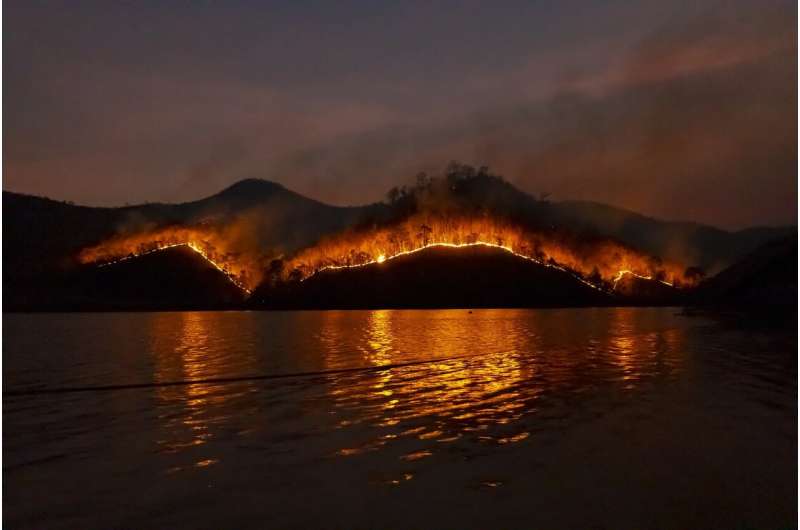
It’s a largely overlooked aspect of mental health care that needs swift resolution—which is why volunteers are being asked by Flinders University’s Professor Sharon Lawn and David Lawrence from The University of Western Australia to participate in a study that aims to map out a better support solution.
“People I’ve met already are everyday members of communities directly and indirectly affected by the fires who pitched in to support each other—but in many cases that hasn’t been enough,” says Professor Lawn, who specializes in mental health research and is also the lead Mental Health Commissioner for South Australia.
“Often mental health issues develop slowly over a period of months or years. We know that many first responders in need of help often avoid seeking help in a timely fashion or don’t receive enough help for their needs. Volunteers are likely to reach out to family and friends first, and fellow volunteers and others in their communities, rather than reaching out to more formal supports.”
Professor Lawn will be continuing interviews with bushfire volunteers until the end of March 2021.
What has been learnt so far about supporting the wellbeing of emergency services personnel—identified in the report “Answering the Call: the first National Mental Health and Wellbeing Study of Police and Emergency Services”, on behalf of Beyond Blue—is that cumulative exposure to traumatic events can have negative consequences over the course of someone’s career and life, and emergency services personnel are at higher risk of developing mental health issues than the general population.
“The overwhelming majority of volunteers and paid firefighters do what they do because they want to serve their communities and help in times of need,” says Professor Lawn. “They care about their communities—and they are likely to be impacted, as anyone would be, when they witness disasters befalling their communities.
“One critically important factor is recognizing changes in wellbeing early and seeking help when it is needed.”
Following the devastating 2019-20 bushfires, the Australian Government provided additional funding through the Medical Research Future Fund to support continuing research into the ongoing wellbeing of volunteer and paid first responders.
Now, through working with the Bushfire and Natural Hazards Cooperative Research Centre, Professor Lawn and her co-researchers will ensure their new information helps develop strategies and programs to most effectively support the wellbeing of Australia’s first responders.
“A challenge for our future bushfire preparedness is sustaining a volunteer workforce of sufficient size and capacity to be able to respond to large-scale events without overtaxing volunteers to the point where they are at risk of burnout,” says Professor Lawn.
She believes the answer requires two areas of attention—maintaining the existing volunteer workforce through providing necessary support, training and resources, and also recruiting and training new volunteers to meet the increasing demands of more intense fire seasons.
Over the next two years, the researchers will continue to connect with communities, to help understand what is needed to effectively support the long-term wellbeing of volunteer and paid firefighters, and how to foster their ability to cope both now and into the future.
Source: Read Full Article
